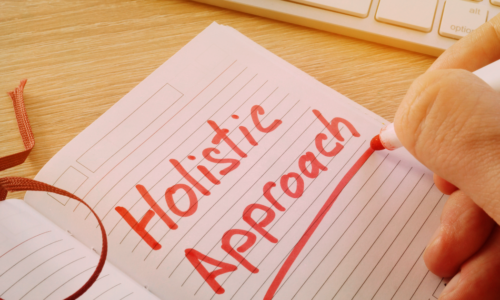
How to Cultivate Social Intelligence: 5 Ways to Understand People
- December 23, 2023
- Community and Support
- 0 Comments
People with high social intelligence tend to make more friends and have better intrapersonal interactions. In this post, we will explore what social and cognitive intelligence is, why it is important, and how you can cultivate this ability to develop better personal and professional relationships.
Table of Contents
What is Social Intelligence?
Have you ever noticed that some people can easily initiate conversations and cultivate relationships while others struggle to maintain even a polite conversation with a stranger?
What do you think makes some people so socially smart that they can interact with anyone without hesitation? Well, mostly their social intelligence gives them an edge over others!
Social Intelligence is a powerful ability that includes actively listening to others, engaging them in meaningful conversations, and understanding their emotions. A socially intelligent individual has the ultimate power to build strong and long-lasting relationships and influence the people they interact with.
If you believe you lack social intelligence, you can fortunately learn this ability like any other skill. The idea is to develop empathy, effective listening, and a better understanding of social behaviors.
In this post, we will uncover some tips and ways to help you foster better professional and personal relationships. Continue reading this guide to learn more!
5 Ways to Improve Social Intelligence
Do you wish to become a socially-aware and self-regulated individual with high social intelligence? Start with these ideas and develop uncanny social skills!
1. Practice Active Listening
What if we told you that practicing active listening will solve so many of your social problems? It is an important skill to have if you wish to truly succeed in the real world.
Research suggests that 85% of what we learn is through listening–not reading or talking! So, before you start working on your conversation skills, learn to listen and pay attention.
Listening to others will not only positively influence your productivity and relationships but also help you build trust and anticipate problems in a better way!
Here are five benefits of practicing active listening:
- Elimination of needless conflicts
- Trustworthy personal and professional relationships
- Better intake of knowledge
- Improved problem-solving skills
- Stronger collaborations
2. Learn About Body Language
Understanding the body language of others can help you a great deal in social interactions. Eye gaze, gestures, and facial expressions are some common elements used to convey information, but you can also take help from physical distance and posture.
Oftentimes, people tend to communicate how they are feeling through body language–especially in uncomfortable situations. So, try to learn the physical cues to interpret the emotions of others.
At the same time, it is also very important to understand your own body language. If you have the habit of slouching or looking at your phone while speaking to someone, this might make the other person feel disinterested in the conversation.
3. Show Empathy
If you wish to thrive in social circles and truly develop social intelligence, you need to learn the art of showing care and empathy. You can’t improve social intelligence without learning to be empathetic and humble.
If someone comes to you with a concern, show them you genuinely care by being kind, understanding, and forthcoming.
Some of the ways you can empathize with people are by being curious about their interests, offering feedback, paying full attention in meetings, and extending physical support.
4. Be Receptive
One thing that can spark up your social intelligence is becoming receptive in your daily interactions. Whether you are in a workspace, family gathering, or social event, try to be willing to see things differently leaving preconceived notions at home.
Sometimes, we develop an impression about someone and tend to carry it whenever we meet them. This behavior can be extremely destructive to your social well-being.
Receptive people are always more open to looking at people anew and being surprised in the process.
If you manage to integrate receptivity into your social interactions, you will build better relationships and intrapersonal connections.
5. Work on Effective Communication
Communicating effectively is the key to building long-lasting connections and thriving in professional life. There are various ways you can work on your speech, social communication, and talking approach.
Lifestyle coaches are particularly adamant about learning communication skills. You should be able to engage people, initiate small talk, speak with confidence in public gatherings, and present ideas with conviction to fully master the art of communication.
Giving compliments, asking open-ended questions, and making eye contact are some other powerful ways to build strong communication.
Social Intelligence and Workplace
Social Intelligence is highly important for people working in large corporate industries, managing a workforce, or leading a team. This skill allows you to motivate your team and bring about emotions that enhance positivity and productivity in the workplace.
Scientists have concluded that boss-employee relationships often flourish when the leader is proactive in creating a positive environment and building meaningful connections within the team.
In fact, leaders who make their team members smile are able to stir positive emotions in the workplace.
Final Words
Social intelligence is a difficult skill to master, especially when you have been socially awkward all your life. While initiating conversations and making friends come naturally to some people, many find it difficult to properly engage at social events.
We advise you to closely observe social situations, see how others are interacting, and what mistakes they are making. This will allow you to build a reference guide for your own interactions.
Try to be very proactive in learning the art of social interaction and improving your social intelligence. Keep working and practicing until things begin to make sense. You are bound to fail at points, but don’t let this failure define your progress!
Learn more: How to Practice Self-Compassion.






